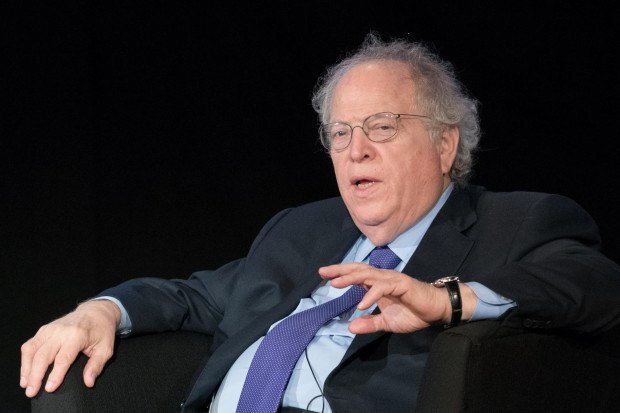
W.R. Berkley Corp.’s legendary chairman said that the insurer should see limited impact following the United Kingdom’s vote to pull out of the European Union, due in large part to a risk management strategy put in place long before the Brexit referendum.
“First of all, we in fact had set up a company in Liechtenstein well in advance, being cautious and wanting to take no chances. We are equipped to do business,” William R. Berkley said during the company’s 2016 second quarter analyst call in response to a Brexit-related question.
Having established operations there “some time ago” as well as in London enabled W.R. Berkley to hedge any risk concerns, so “it won’t have an impact on us,” Berkley said.
At the same time, he was also not ready to write off London anytime soon.
“Clearly the intellect that is based in the London market continues to be there. We don’t see it disappearing,” Berkley said about the Brexit vote aftermath. “We think London will continue to be the center of the insurance business in that part of the world. We don’t really see a major change or significant impact.”
Market Candor
At the start of the investor call, W.R. Berkley Corp. President and CEO W. Robert Berkley Jr. – the chairman’s son – offered an assessment of different aspects of the market, sometimes with a candor echoing his father and predecessor from past investor calls.
W. Robert Berkley, noted, for example, the continued low interest rate environment, which has hampered investment returns and caused problems for insurers as a result.
“We have this continued low interest rate environment around the world. It has really gotten to the point where it could make your eyes tear,” the younger Berkley said.
At the same time, Berkley noted that the insurance/reinsurance market continues with patterns established during Q1.
“The reinsurance market continues to flirt with the bottom. On the other hand, the insurance market is becoming incrementally more competitive, though it can vary greatly by product or class,” he said.
Berkley said property, particularly property catastrophe coverage, remains “surprisingly competitive to a certain extent.” Why might this be?
“My speculation would be this is the result of the reinsurance market empowering the insurance market to be less than responsible in many situations,” he noted.
However, Berkley said that the professional space “is very much a mixed bag.”
“On the one hand, the Fortune 500 D&O excess market is surprisingly competitive, as are parts of the medical space,” Berkley said. “Having said that, there are other components of the professional market that are exceptionally attractive and these things provide meaningful opportunity for growth, where margins are attractive.”
Berkley said that commercial auto appears to be returning to more disciplined underwriting, with rate increases and a momentum “beginning to shift between supply and demand.” But he sees workers compensation as another “mixed bag.”
“As many of you are aware, workers compensation is the largest component of the commercial lines space, and there are parts of this market where the margins are exceptionally attractive and we continue to find opportunities to grow our business,” Berkley said. But “there certainly are parts of the comp market that give one reason to pause.”
He called the casualty market the “brightest bulb on the tree,” but added, without further explanation, that “the stupidity award would go to the aviation and the global marine haul market.”
Results Meet Expectations
Berkley said that results during the quarter, despite higher catastrophe losses, were “in line with our expectations.”
W.R. Berkley booked more than $1.9 billion in gross premiums written during Q2, versus $1.8 billion in the 2015 second quarter. Net premiums written surpassed $1.64 billion, up from $1.54 billion over the same period last year.
W.R. Berkley’s consolidated combined ratio was 94.9, versus 94.2 in the 2015 second quarter. Its reinsurance combined ratio hit 101.4 (versus 93.6 last year), and its insurance combined ratio was 94.2 (about on par with Q2 2015)
Combined catastrophe-related losses came in at $40.5 million during the 2016 second quarter, close to double the $24.5 million booked over the same period in 2015.
The carrier’s net income came in at close to $109 million, or $0.85 per diluted share, down from $123 million, or $0.95 per diluted share, in the 2015 second quarter.
Net investment income hit $129 million, up from close to $127.6 million in the 2015 second quarter.





















 Retired NASCAR Driver Greg Biffle Wasn’t Piloting Plane Before Deadly Crash
Retired NASCAR Driver Greg Biffle Wasn’t Piloting Plane Before Deadly Crash  Lessons From 25 Years Leading Accident & Health at Crum & Forster
Lessons From 25 Years Leading Accident & Health at Crum & Forster  Earnings Wrap: With AI-First Mindset, ‘Sky Is the Limit’ at The Hartford
Earnings Wrap: With AI-First Mindset, ‘Sky Is the Limit’ at The Hartford  Preparing for an AI Native Future
Preparing for an AI Native Future 











